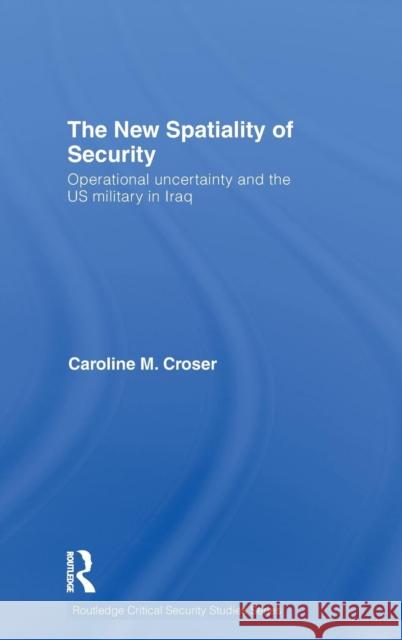The New Spatiality of Security: Operational Uncertainty and the US Military in Iraq » książka
The New Spatiality of Security: Operational Uncertainty and the US Military in Iraq
ISBN-13: 9780415565226 / Angielski / Twarda / 2010 / 184 str.
The New Spatiality of Security: Operational Uncertainty and the US Military in Iraq
ISBN-13: 9780415565226 / Angielski / Twarda / 2010 / 184 str.
(netto: 744,80 VAT: 5%)
Najniższa cena z 30 dni: 705,23
ok. 16-18 dni roboczych.
Darmowa dostawa!
This book provides a rigorous critical analysis of how the US military operates in Iraq, exploring the spatial practices of violence. Contemporary critical analyses of the United States' involvement in Iraq and Afghanistan emphasise the hegemonic nature of the US military experience, while conventional military analyses focus on fixed categories such as 'counter-insurgency' or 'network-centric warfare'. Drawing on fieldwork examining the use of a new command and control technology by 1st Cavalry Division (US Army) in 2004-2005, this book elaborates a more nuanced understanding of US military violence by exploring the changing (and sometimes incoherent) spatial practices through which violence was exercised. The author combines fieldwork with a spatial vocabulary of violence from the work of Michel Foucault, Henri Lefebvre and Gilles Deleuze and Felix Guattari and methodological inspiration from the micro-observations of material semiotics in Science and Technology Studies to conclude that the US Army's experience in Iraq has been neither as circumscribed nor as easily defined as critical theorists and conventional military analysts alike would suggest. This innovative book will be of much interest to students of critical security studies, strategic studies, military studies, social and spatial theory and IR in general. Caroline M. Croser is a Lecturer in Politics at the University of New South Wales at the Australian Defence Force Academy, where she teaches defence studies.











